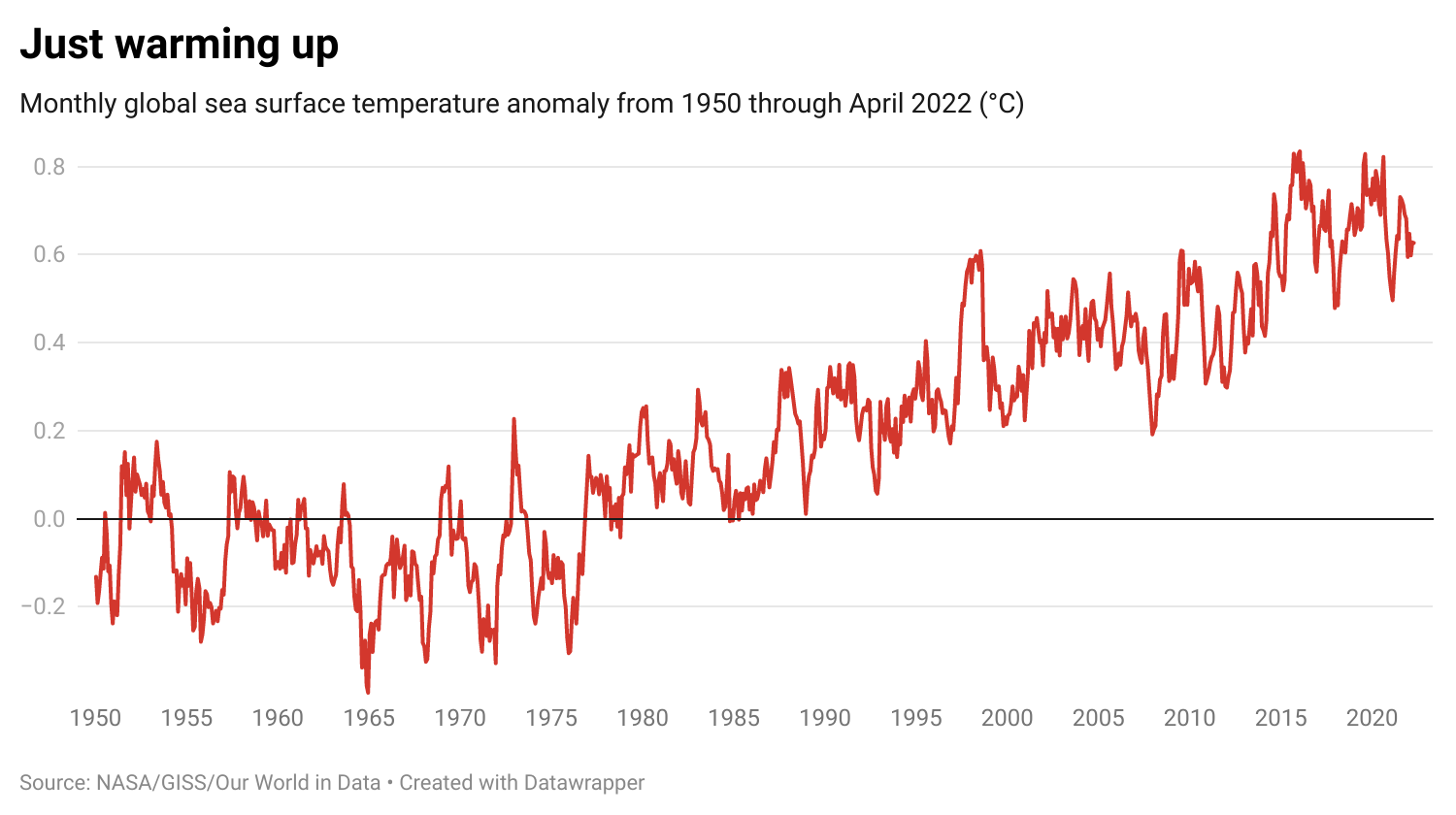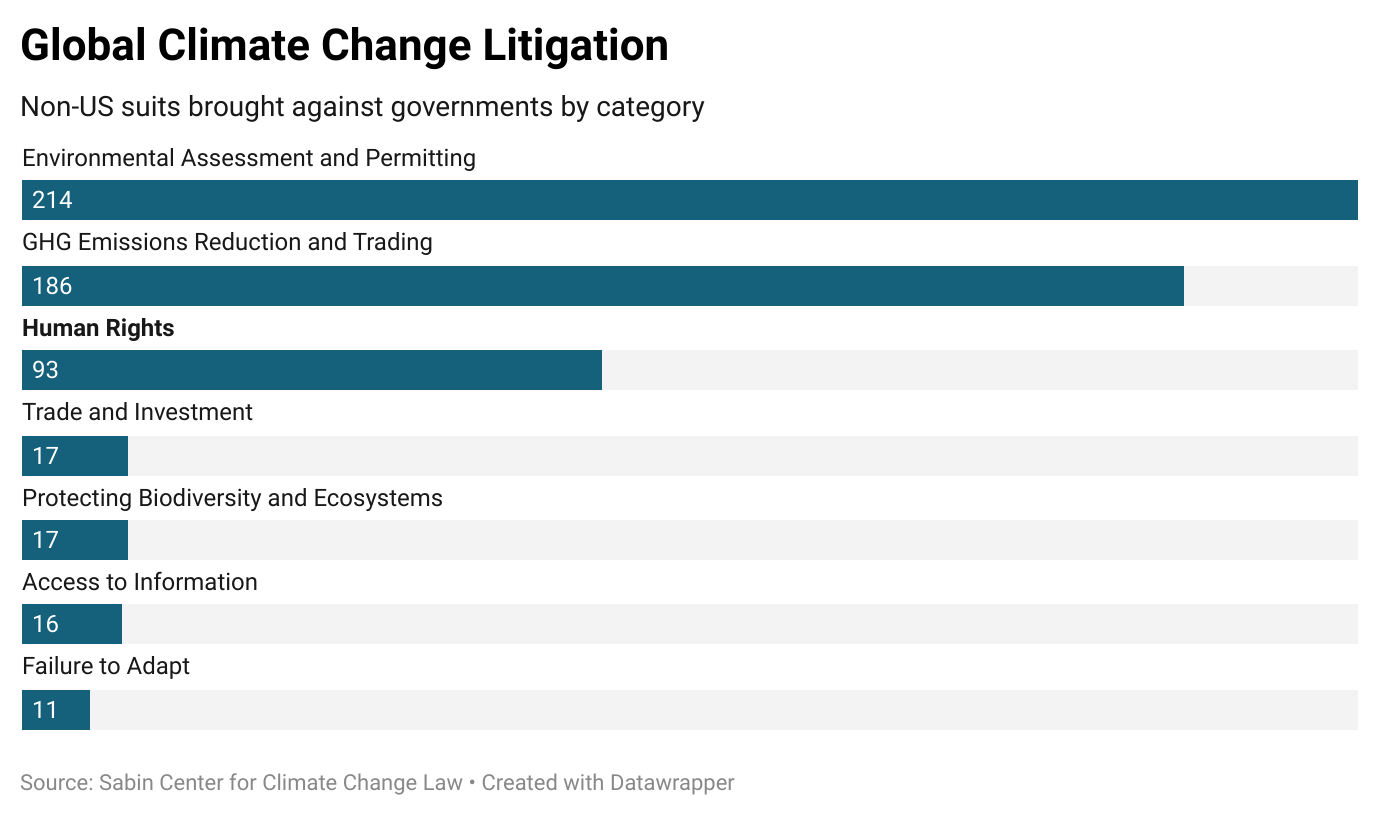by John Letzing and Minji Sung*
The UN Human Rights Office clearly states that climate change threatens the enjoyment of life, food, and health.
It would probably be difficult to respond to this by taking a shift in global weather patterns to court. But what about companies and governments allowing that catastrophic shift to continue – in order to keep money flowing in and constituents appeased?
Last week, a group of young plaintiffs filed a complaint with the European Court of Human Rights over a 1990s-era treaty requiring governments to compensate energy companies and investors if public policies cut into their profits. That includes policies designed to combat climate change.
The plaintiffs say the “Energy Charter Treaty” impedes climate action and undermines their protections under the European Convention on Human Rights. Clementine Baldon, an attorney representing them, said in an email that they hope a ruling in their favour encourages governments to exit the arrangement.
It’s just the latest rights-based effort to take climate inaction to court.
“It’s likely that human rights-related climate litigation will continue to increase,” Baldon said, particularly if the European Court of Human Rights rules in favour of plaintiffs in pending matters like the “Swiss grandmothers case.”

The “Swiss grandmothers” is a group of women (minimum age: 64) that sailed up the Rhine in 2020 to deliver a complaint to the Strasbourg-based court alleging Switzerland’s government has failed to protect their health amid worsening, climate change-related heatwaves.
Another case Baldon mentioned, filed with the same court in 2020, argues that 33 countries are failing to protect the rights of young people in Portugal to health and well-being by insufficiently curbing emissions (Baldon represented another plaintiff in the “Case of the Century” in France, which held that country’s government liable last year for missing its climate goals).
The litigation push comes as impacts of the climate crisis mount. Recent heatwaves in India and Pakistan killed dozens of people while depleting crop yields; Europe has been hit more recently with extreme heat and drought; and last week record-high temperatures derailed a commuter train near San Francisco.
Funding settlements, not climate measures
The target of Baldon’s clients, the Energy Charter Treaty, was formed at a time when western investors were concerned about the security of their accumulating assets in fossil fuel-rich former Soviet states – and participating countries didn’t have much to speak of yet in terms of climate objectives.
Efforts have been made to modernize the treaty and align it with the Paris Agreement; a related deal was reached last week, though it’s been criticized as insufficient. As of last year, the treaty had been used to bring more than 140 known cases against countries (its dispute resolution process doesn’t occur in open court and has been called “opaque”).
Some experts and policy-makers say this poses a substantial threat to the implementation of climate measures, according to a report published last year.

The treaty is a popular tool for contesting climate action, but it’s not the only one.
A recent study estimated governments could be hit with as much as $340 billion in claims from energy firms and investors as a result of efforts to act on climate change. A bitter irony is that this would include many low- and middle-income countries disproportionately vulnerable to climate impacts, according to the study.
The surplus of legal action running counter to climate change policies makes litigation supporting them seem like a logical counterbalance – particularly at a time when countries around the world are setting new heat records.
By some measures, climate-related litigation seems poised for expansion as it builds on a growing body of scientific data and a handful of successful efforts.
A recent analysis specifically of rights-based climate lawsuits found that they’re a relatively recent phenomenon, and the track record is so far mixed. Of the 57 cases in the analysis that had been decided, only 44% had been found in favor of plaintiffs.
Most defendants in these cases have tended to be countries or public authorities, the analysis found – but a “rapidly increasing” number of suits are targeting corporations.
More reading on climate litigation, human rights, and energy policy
For more context, here are links to further reading from the World Economic Forum’s Strategic Intelligence platform:
-Human rights-based climate lawsuits are no longer just focusing on matters like the right to life, according to this piece, and instead are using research into psychological impacts to argue government inaction amounts to inhuman treatment. (Clean Energy Wire)
-Some of the problems with the Energy Charter Treaty, according an expert quoted this piece: a “neo-colonial historical context,” and a system for settling disputes “behind closed doors.” (Raconteur)
-Most investor-state legal cases concerning fossil fuels have been decided in favor of the private sector, according to this piece, and the way damages are calculated leads to “huge awards.” (Eco-Business)
-The “trickle-up effect” – with governments falling short on pledges and companies accused of greenwashing, human rights-based climate litigation is increasingly important for accountability, according to this analysis. (Chatham House)
-Humans aren’t the only victims of climate change. According to this research, even temporarily overshooting the Paris Agreement target of limiting warming to 2°C would mean “waves of irreversible extinctions and lasting damage to tens of thousands of species.” (The Conversation)
-The science of “weather event attribution” is starting to show the true costs and impacts of climate change, according to this study, and the best assessments can prove valuable for litigation efforts. (Science Daily)
-Denying people access to tasty hot sauce may not be a human rights violation, but it gets their attention. According to this piece, climate change-related drought may be the cause of a sriracha sauce shortage. (Smithsonian Magazine)
On the Strategic Intelligence platform, you can find feeds of expert analysis related to Human Rights, Climate Change and hundreds of additional topics. You’ll need to register to view.
*Digital Editor, Strategic Intelligence, World Economic Forum and Data Visuals and Content Specialist, Strategic Intelligence, World Economic Forum
**first published in: www.weforum.org




 By: N. Peter Kramer
By: N. Peter Kramer
